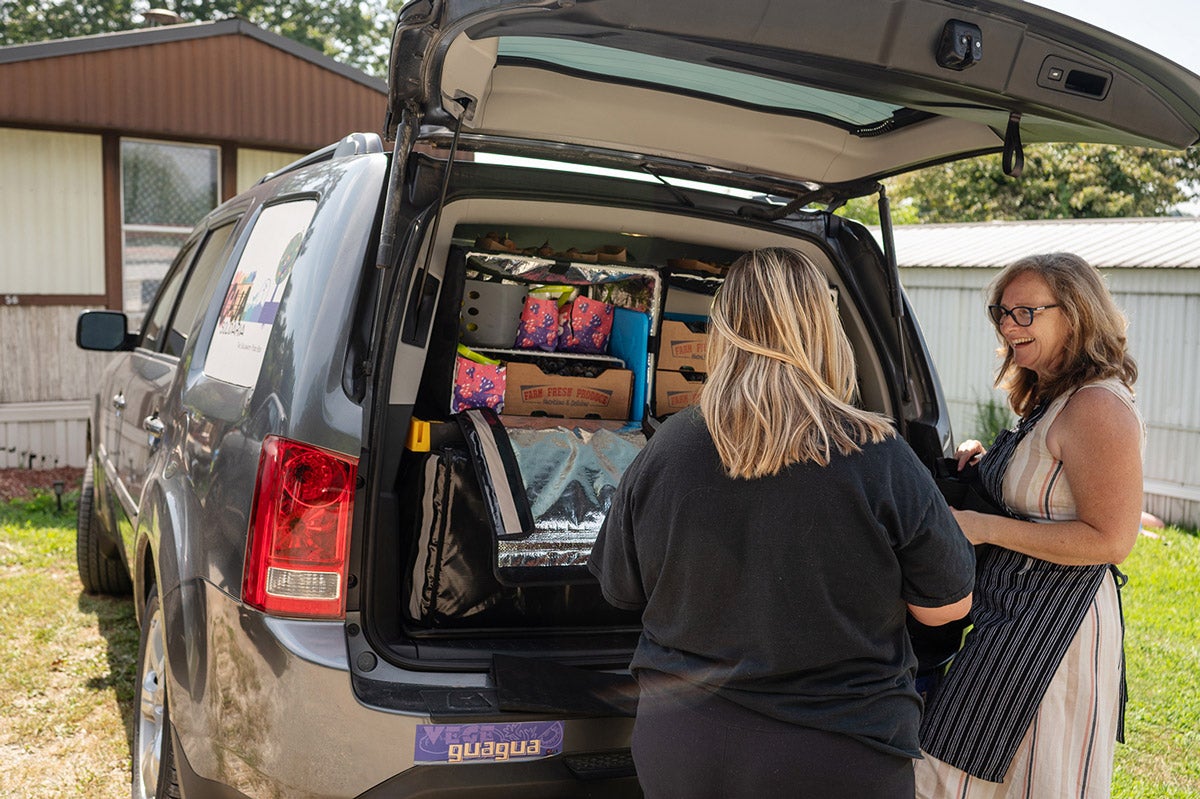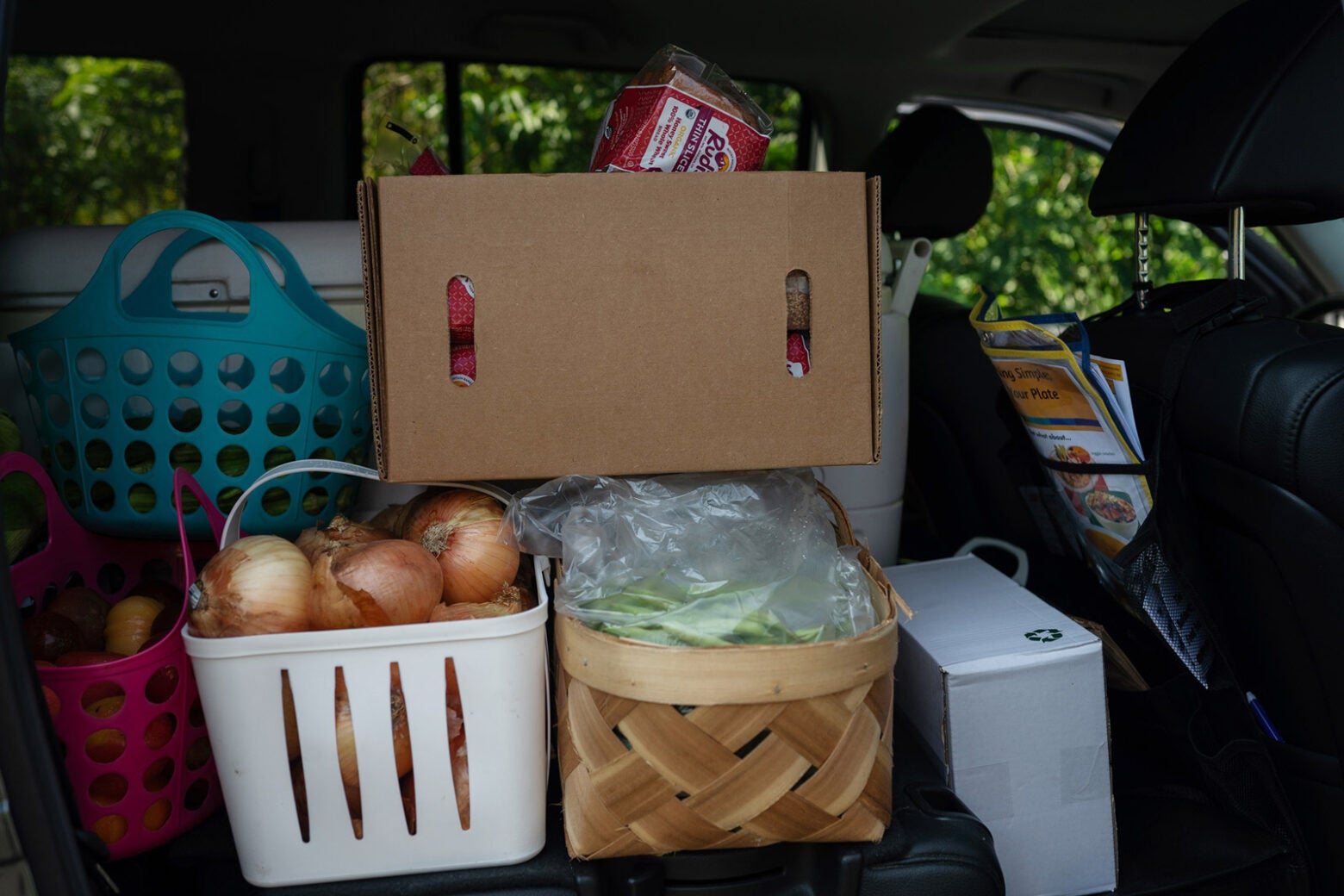
Opinion
North Carolina’s Medicaid experiment is working. Here’s how we know.
In 2022, North Carolina launched the Healthy Opportunities Pilots, a first-of-a-kind effort to use Medicaid to address health-related social needs at scale. It is available in three regions of the state and focused on four areas linked with health outcomes: safe and affordable housing, healthy foods, accessible transportation, and violence remediation. Services in these areas are provided by local community organizations who are paid by insurance plans as if they were health care providers. Following North Carolina’s example, policymakers around the country are taking action to address the social drivers of health.
As North Carolina’s program is up for renewal and expansion by the Centers for Medicare and Medicaid Services (CMS), our research team has assessed the pilots since the program’s inception, analyzing it at a systems level through talking with people delivering and receiving services. The evidence and experiences to-date merit renewal.
For starters, it has helped a lot of people. More than 30,000 qualified Medicaid members have enrolled in the pilots. They have received one or more of 29 available services, such as delivering healthy food boxes, paying for transportation services, and making homes and apartments safer, healthier, and more accessible. Renewal will mean the pilots can be extended across the whole state, opening these services to more Medicaid recipients. (North Carolina also recently increased health coverage to over 500,000 people through Medicaid expansion, which would create greater access to an expanded program.)

Boxes and baskets of fresh food are loaded for delivery from Caja Solidaria, a nonprofit dedicated to healthier diets and part of North Carolina Medicaid’s Healthy Opportunities Pilots.
Photo: Andrea Bruce for Harvard Public Health.
The Healthy Opportunities Pilots program ties into strategy for CMS, the federal agency financing the work and the largest payer of health care nationwide. CMS has focused its efforts on addressing health-related social needs, aiming to create a more integrated health and social care experience for millions of Americans. Programs such as the pilots allow CMS to assess the evidence behind social needs services and decide whether these services should become a part of public insurance.
And the program may be lowering health care costs. An interim program evaluation found a decrease in unnecessary emergency department visits and hospitalizations among people being helped by the program. Those reductions led to net monthly savings of $85 per service recipient—meaning the program saves more than it spends on services. These findings offer welcome relief amid ongoing concerns about rising American health care spending.
Creativity and flexibility: A look at the housing sector
According to the most recent data, community organizations in the three pilot areas have received over $107 million for providing services (they also received one-time costs to build up and train them for the program’s launch.). Mostly local entities, they are organized into regional networks, each supported by a community care hub. This hub model, which the federal government is investing in, has proven useful for including small community organizations in the complex health system. A look at the housing sector, where our research team has worked most closely, tells this story.
Sign up for Harvard Public Health
Delivered to your inbox weekly.
North Carolina, like many states, faces an acute crisis in safe and affordable housing.
Poor housing quality directly impacts health (such as mold, pests, or safety issues that cause fall risks). Housing instability—partly through forcing families to make cost-based trade-offs with other essentials such as food and health care—is a key driver of poor health outcomes. Community organizations within the pilots are currently reimbursed for nine different housing support services, including paying for a tenant’s security deposit and first month’s rent, helping families navigate affordable housing options, and carrying out essential home repairs.
We found housing to be the most expensive, time-intensive, and challenging social need to address. Medicaid plans need time to verify that provided housing services comply with program standards, but some community organizations struggled with cash flow while waiting to get paid back by the plans for providing expensive services like repairs. Housing contractors and landlords are also less familiar with health care and Medicaid policy but are critical to pilots service provision.
The pilots program and its partners have shown resilience and ingenuity to overcome these challenges by designing creative business training and financing solutions for community organizations, updating reimbursement rates to keep pace with inflation, and convening forums where pilots participants can discuss challenges and share strategies. Care hubs drove many of these innovations and convening efforts, with support from the state, philanthropic organizations, and researchers.
Pushback
Despite the pilots’ momentum, strengthening connection between the health care and social service sectors has sparked concern from some prominent voices about health care “mission creep.” Some scholars question the effectiveness of cross-sector collaborations, exercising caution for financing such efforts due to mixed evidence on health improvement and uncertainty about cost effectiveness. Return on investment for addressing health-related social needs is an area of ongoing work, but research shows high-quality evidence of cost savings from several interventions. Cost reductions from the early phase of the pilots suggest high potential for health care savings.
Some experts worry that investing in health-related social needs fails to fix a social safety net weakened by decades of systemic racism and declining spending on social programs. However, the pilots and similar Medicaid programs are not allowed to replace existing funding. Instead, programs like the pilots actively remedy stagnant social service funding by opening up new federal health care dollars to invest directly in local organizations equipped with unique expertise to address their community’s needs. Giving these organizations a new regular source of income has expanded their reach, helping them hire more workers and provide a wider array of services.
What happens next
The first phase of the Healthy Opportunities Pilots ends in this month. North Carolina requested a renewal of the program from CMS, which would allow it to run for another five years and be available to anyone with NC Medicaid, a social need, and qualifying health conditions. Earlier this year, CMS approved a similarly expansive statewide program in New York that was heavily influenced by North Carolina’s.
Should CMS renew the pilots, its enrollment criteria and service definitions would also expand based on learning from the program, public feedback, and other states’ examples. For example, consistent with CMS’ new guidance, North Carolina now seeks to cover rent payments for up to six months, including back rent, and add assistance with mortgage payments.
The Healthy Opportunities Pilots program offers a broad population-based testing ground for innovative and much-needed social services to see which ones benefit communities the most and should be permanently added to Medicaid. Renewing the program is the first step on a journey of reform—supported by evidence and experience—that can create a more resilient health care system equipped to redress systemic inequities and meet the challenges of 21st century health care.
The authors’ research was supported by a grant from the Kate B. Reynolds Charitable Trust.
Top image: As part of North Carolina Medicaid’s Healthy Opportunities Pilots, a person receives a fresh food delivery from Caja Solidaria, a nonprofit dedicated to healthier diets. Photo: Andrea Bruce for Harvard Public Health.


